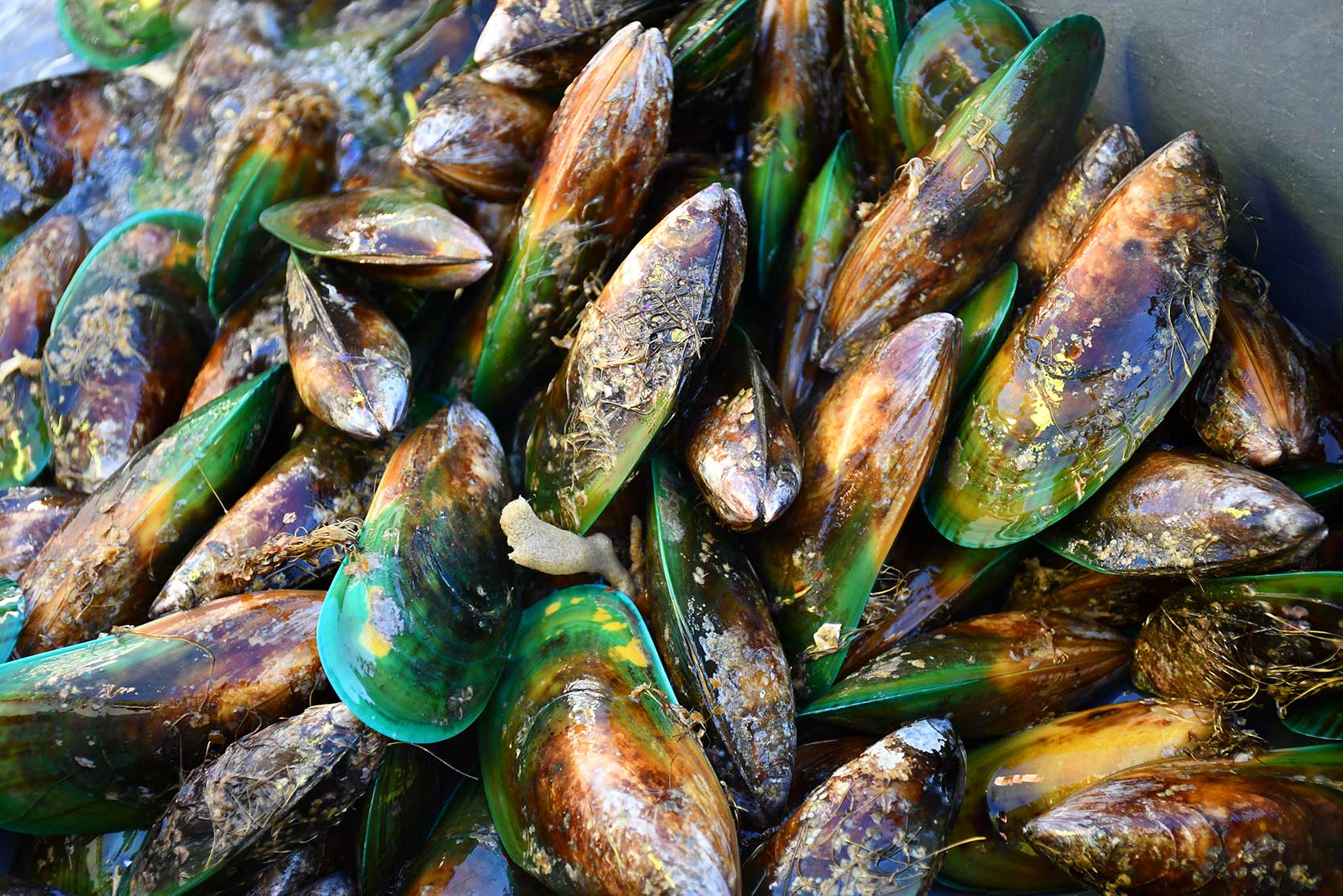Heart Health
Declining heart health is something that many of us fear as we get older. Heart disease remains one of the top risk factors in the Western world. FREZZOR Omega-3 Black supports a healthy heart by keeping arteries smooth and free of damaging plaque build-up that could restrict blood flow.
Healthy Inflammation Management
A healthy immune system with a controlled inflammatory response is essential to our survival. Still, this process sometimes spirals out of control and needs our help. FREZZOR Omega-3 Black contains one of the most powerful, all-natural anti-inflammatories on the planet. - we have filed a patent because it is that good!
Movement & Joint Mobility
It can be hard to maintain an active lifestyle with the demands of modern living. This lack of exercise and physical activity places stress on joints and lessens our mobility. FREZZOR Omega-3 Black joint health supplement greatly assists with increasing joint mobility to allow you to do the activities you have been wanting to do for years.
Superior Cognitive Function
Most people complain of losing mental clarity and focus as they age; others accept that "brain fog" is a part of a busy, overworked lifestyle. – It doesn't have to be that way. FREZZOR Omega-3 Black improves mental clarity and focus, reduces memory loss & mental fog. It supports superior brain health.
Vision & Eye Health
Continuous exposure to phones and computer monitors subjects our eyes to the damaging effects of blue light. The cumulative exposure to blue light can damage the sensitive cells in our retina. FREZZOR Omega-3 Black & FREZZOR Astaxanthin preserves and supports vision and eye health recovery, improves dry-eye syndrome, and lowers the risk of age-related macular degeneration.
Inner Fitness & Healthy Gut
A hectic, high-pressure lifestyle impacts the quality of our food and overall gut health, leading to low energy and dysfunctional wellbeing. Optimal health generally starts with a healthy gut and well-balanced gut bacteria. FREZZOR Omega-3 Black, combined with whole organic food, clean water, and regular exercise, helps restore optimal health, lift energy, and promotes a healthy weight.
A Natural Oil as Nature Intended It.
FREZZOR Green Lipped Mussel Oil supplement is a wholly unaltered and naturally processed, full-spectrum bioactive marine oil. New Zealand Green Lipped Mussels are grown in the clean, pure, and pristine inshore coastal waters of New Zealand that is sustainable, renewable, and well-managed.
All aspects of the growing and production of New Zealand Green Lipped Mussels are strictly controlled by the New Zealand Government's Ministry for Primary Industries,...
Joint Comfort
Independently tested and proven to be the most potent joint health supplement in its class. In recent a scientific study, FREZZOR OMEGA-3 BLACK Capsules was shown to be 53 TIMES more EFFECTIVE than the other mussel oil competitors or other essential fatty acids supplements.
Small but Mighty
Easy to swallow soft-gel supplement for Joint Comfort and Mobility. No unpleasant fish burps, gluten-free, GMO-free. Our greenlip mussel supplements are much smaller than bulky fish oil capsules, easier to consume and are significantly more potent.
Extraction Process
We achieve this improved effectiveness with our new ultrasonic, cold-extraction process (patent-pending), which is more efficient at extracting the essential bioactive compounds. We control the entire extraction and production process of the green lipped mussel extract; from sustainably farmed New Zealand mussels to the extraction of green lipped mussel oil. The greenshell mussel is found only in New Zealand.
Industry Leadership
The Founder of FREZZOR Inc, Noel Turner is the Pioneer of New Zealand's Green-Lipped Mussel Industry with over 50 years of experience in the processing and extraction of NZ Green-Lipped Mussel. Noel personally ensures you get the best quality and most biologically active green lipped mussel oil to assist with joint comfort and mobility.
Money Back Guarantee
Studies show that on average, it takes about 3 months for levels of omega-3's to reach a balance within the body. If after 3 months, FREZZOR OMEGA-3 BLACK hasn't worked, email us, send us the empty bottles and we will provide you a full refund.
We have full confidence in the effectiveness of our product that we stand behind it 100%; we want you to share in our experience and buy...
✅ 53× Stronger Joint & Mobility Support
Independent studies confirm FREZZOR is 53 times more effective at reducing stiffness and improving flexibility than other omega-3s or mussel oils.
❤️ Supports a Healthy Heart
Helps keep arteries smooth and clear of damaging plaque—critical for strong circulation and cardiovascular wellness as you age.
🧠 Sharper Mind, Clearer Focus
Fights “brain fog” and supports memory with bioavailable DHA and phospholipids proven to nourish aging brain cells.
👁️ Protects Your Vision
Rich in natural astaxanthin and omega-3s to defend against blue light damage and age-related vision decline.
🌿 Gentle & Easy to Take
Small, smooth softgels—no fishy aftertaste, no burps. Gluten-free, non-GMO, and easy to swallow—even for sensitive stomachs.
🇳🇿 Pure New Zealand Origin
Sustainably farmed in the pristine waters of Marlborough Sounds. No additives, no fillers—just nature’s most potent marine oil.
FAQ
FREZZOR Omega-3 Black
What is FREZZOR Omega-3 Black?
FREZZOR Omega-3 Black is a premium lipid extract derived exclusively from New Zealand’s green-lipped mussel (Perna canaliculus)—one of nature’s richest sources of omega-3 fatty acids. Unlike ordinary mussel powders, FREZZOR captures only the pure oil fraction of the mussel, making it up to 20 times more concentrated and bioavailable.
This rare marine oil contains a full spectrum of omega fatty acids, phospholipids, and bioactive lipids that work in perfect harmony to support joint health, cardiovascular function, brain performance, and whole-body cellular vitality.
Using our proprietary ultrasonic cold-extraction process, we gently release the delicate oils and nutrients from fresh green-lipped mussels without heat, solvents, or oxidation. This method preserves every fragile compound in its natural state, ensuring unmatched potency and purity.
To further enhance protection against oxidative stress, FREZZOR Omega-3 Black is fortified with our exclusive UAF1000+ super-antioxidant blend, delivering 53 times more antioxidant power than standard fish oil.
The result is the world’s most powerful omega-3 supplement—pure, sustainable, and scientifically advanced, created entirely in New Zealand under the leadership of FREZZOR founder Noel Turner, the pioneer who first introduced green-lipped mussel oil to the world.
Who is behind FREZZOR Omega-3 Black?
FREZZOR Omega-3 Black was created by Noel Turner, a New Zealand entrepreneur, ocean pioneer, and founder of FREZZOR. For more than five decades, Noel has dedicated his life to harnessing the extraordinary health potential of New Zealand’s pristine natural environment.
In the 1970s, Noel was one of the first to develop sustainable aquaculture practices for New Zealand’s native green-lipped mussel (Perna canaliculus)—a marine superfood found nowhere else on Earth. His deep respect for nature and his relentless curiosity about the connection between nutrition and wellbeing led him to explore how this remarkable shellfish could support human health.
Through years of research, Noel and his team discovered that the true power of the green-lipped mussel lies in its delicate lipid oil, rich in omega-3 fatty acids, phospholipids, and rare bioactive compounds. Determined to preserve these fragile nutrients in their natural state, Noel developed FREZZOR’s proprietary ultrasonic cold-extraction process, a gentle, solvent-free method that maintains the oil’s full potency and purity.
This innovation became the foundation of FREZZOR Omega-3 Black—a breakthrough supplement combining New Zealand’s most potent marine lipids with FREZZOR’s exclusive UAF1000+ super-antioxidant blend, delivering 53 times more antioxidant protection than standard fish oil.
Today, under Noel Turner’s leadership, FREZZOR continues to represent the pinnacle of New Zealand science, sustainability, and wellness innovation—bringing nature’s purest nutrients from ocean to capsule, as nature intended.
How soon will I feel results?
Most users notice improved joint comfort and energy within 4–8 weeks. For full benefits, we recommend consistent use for 90 days.
Where does the green-lipped mussel grow?
The green-lipped mussel (Perna canaliculus)—also known as the green-shelled mussel—is a marine species found only in New Zealand’s pristine coastal waters. It is a true natural treasure, thriving in a unique environment that cannot be replicated anywhere else on Earth.
FREZZOR’s green-lipped mussels are sustainably cultivated on ropes suspended in the crystal-clear waters of the Marlborough Sounds, a breathtaking region at the northern tip of New Zealand’s South Island. These fjord-like inlets are sheltered from harsh ocean currents, creating an ideal environment with clean, nutrient-rich seawater constantly refreshed by the tides.
Here, in one of the purest marine ecosystems in the world, the mussels feed naturally on microscopic plankton and minerals carried by the ocean currents. No artificial feeds, no chemicals, and no pollutants—just the perfect balance of sunlight, seawater, and natural nutrients.
This pristine habitat allows the green-lipped mussel to develop its distinctive emerald-green shell and its extraordinary nutritional profile, rich in omega-3 fatty acids, phospholipids, and unique marine bioactives. Every capsule of FREZZOR Omega-3 Black begins here, in New Zealand’s untouched waters, where purity and sustainability come first.
What does the green-lipped mussel feed on?
The New Zealand green-lipped mussel (Perna canaliculus) thrives naturally in the nutrient-rich coastal waters surrounding New Zealand. These remarkable shellfish are filter feeders, meaning they sustain themselves entirely by filtering microscopic phytoplankton and minerals from the ocean water.
Carried by powerful ocean currents from the cold, pristine Antarctic waters, this phytoplankton is an exceptionally pure and nutrient-dense food source. It provides the mussels with essential omega fatty acids, amino acids, and trace minerals, which in turn create the unique nutritional profile found in FREZZOR Omega-3 Black.
What makes this process extraordinary is that it happens completely in harmony with nature. The mussels grow without any artificial feed, antibiotics, pesticides, or additives—relying solely on the nutrients naturally present in the sea. FREZZOR’s aquaculture practices follow strict environmental management systems, ensuring that every mussel is cultivated sustainably and that the surrounding marine ecosystem remains unspoiled.
This natural, self-sustaining feeding process not only keeps the mussels healthy and vibrant but also results in an oil of unmatched purity, potency, and bioactivity—the foundation of FREZZOR Omega-3 Black.
What is so unique about the green-lipped mussel?
The New Zealand green-lipped mussel (Perna canaliculus) is one of nature’s most extraordinary marine discoveries—renowned for its remarkable ability to support joint health, mobility, and overall wellbeing. Its story began decades ago, when researchers noticed something remarkable among the coastal Māori communities of New Zealand.
Despite their physically demanding lifestyle, the coastal Māori people remained remarkably free from joint discomfort and inflammation, even well into old age. Scientists seeking to understand this phenomenon compared their diet with that of Māori populations living inland. The difference was clear: those living by the sea consumed large amounts of green-lipped mussels, while inland populations did not.
This observation led researchers to uncover that the green-lipped mussel contained unique bioactive compounds—a naturally occurring blend of omega-3 fatty acids, phospholipids, and specialized marine lipids not found in any other species on Earth. These compounds exhibited powerful anti-inflammatory properties, helping the body maintain healthy joint function, flexibility, and comfort.
What makes the green-lipped mussel even more special is that it is completely unique to New Zealand’s coastal waters, thriving only in its clean, mineral-rich marine environment. The synergy of its rare nutrient profile and the purity of its natural habitat has made it one of the most researched and effective natural joint-support ingredients in the world.
At FREZZOR, we preserve this natural potency through our proprietary ultrasonic cold-extraction process, ensuring that every capsule of FREZZOR Omega-3 Black delivers the same purity, power, and natural balance that first amazed scientists decades ago.
How is FREZZOR green-lipped mussel lipid extract made?
FREZZOR New Zealand ultrasonic cold extraction technology extracts both omega fatty acids, phospholipids, and carotenoid family members in the absence of heat. Fatty acids play a central role in the metabolism of the human organism. They are important as energy carriers, as cell membrane components, and as starting substances for other substances, such as hormones and metabolic products that influence inflammatory reactions. Omega-3 fatty acids, in particular, occupy a special position among fatty acids because these polyunsaturated fatty acids are essential, i.e., they cannot be produced by the body itself and must be taken in through food or dietary supplements.
Why is a good balance between omega-6 and omega-3 so crucial for the body?
Both omega-3 and omega-6 fatty acids are essential for human life. Both fatty acids interact to control essential processes in the body. One of these is the immune system, which is directly related to a healthy omega-6 to omega-3 balance. It is known that omega-6 starts the inflammatory process, but omega-3 helps to counteract inflammation. So, unsaturated fatty acids need to be supplied through diet or supplements (in the form of oils). Two types of these are omega-6 fatty acids and omega-3 fatty acids. However, both fatty acids must be supplied to the body in a good ratio. Due to the overuse of industrial foods and fatty foods due to refined oils (corn oil, sunflower oil) and meat consumption with corn-fed cattle from factory farms, our body is flooded with omega-6 fatty acids. It can trigger inflammatory reactions in the body in particular. Many people, therefore, without knowing it, do not have an optimal omega-6 to omega-3 balance (25-30:1 or even more unbalanced) in their bodies. An optimal balance of a 4:1 to 1:1 ratio of omega-6 to omega-3 can help reduce inflammation.
What is the difference between animal and plant omega-3?
Omega-3 fatty acids are essential fats that the body cannot produce on its own—they must come from food or supplementation. However, not all omega-3s are created equal, and their effectiveness depends greatly on the source.
Plant-based omega-3s, found in sources such as flaxseed oil, chia seeds, hemp oil, and walnuts, contain alpha-linolenic acid (ALA). While ALA is technically an omega-3 fatty acid, the body must convert it into EPA (eicosapentaenoic acid) and DHA (docosahexaenoic acid)—the two long-chain omega-3s responsible for the most significant health benefits, including heart, brain, joint, and eye health.
The challenge is that this conversion process is extremely inefficient. On average, the human body can convert only 5–10% of ALA into EPA and a mere 2–5% into DHA—and in many people, even less. This means that while plant oils are healthy and beneficial in many ways, they are not an effective or reliable source of EPA and DHA, the omega-3s that truly make a difference in cellular and cardiovascular health.
In contrast, animal-based omega-3s, such as those derived from marine sources like green-lipped mussel oil, already contain EPA and DHA in their active, ready-to-use forms. The body can absorb and utilize these fatty acids directly, without the need for conversion. These long-chain omega-3s are scientifically proven to support cardiovascular function, lower triglycerides and blood pressure, reduce inflammation, and enhance brain and nervous system performance.
FREZZOR Omega-3 Black provides these vital EPA and DHA fatty acids in their phospholipid form, naturally bound for superior absorption and cellular integration—making it far more bioavailable and effective than standard fish or plant oils.
What oils are in FREZZOR Omega-3 Black?
FREZZOR Omega-3 Black contains a pure and potent marine lipid extract derived from the New Zealand green-lipped mussel (Perna canaliculus)—a natural source of over 30 different omega fatty acids, including the highly beneficial EPA (eicosapentaenoic acid) and DHA (docosahexaenoic acid) in their most bioavailable phospholipid form.
Because omega-3 fatty acids are extremely delicate and reactive, they can oxidize quickly when exposed to air, heat, or light. This is why FREZZOR takes extraordinary care in every stage of production to protect these fragile oils from oxidation and preserve their full potency.
Our extraction process uses a proprietary ultrasonic cold-extraction technology, which gently releases the oil from fresh green-lipped mussel tissue without heat, pressure, or solvents. This ensures that every molecule of the oil remains pure, active, and exactly as nature intended.
Once extracted, the oil is immediately encapsulated in an oxygen-free environment using bovine gelatin sourced from 100% New Zealand pasture-raised cattle. These airtight capsules protect the sensitive marine lipids from exposure to oxygen, maintaining their freshness and stability all the way to your hands.
Because FREZZOR Omega-3 Black contains natural, unprocessed mussel oil, you may notice a subtle marine aroma when opening the capsules. This is completely normal—and a reassuring sign of authenticity and purity. It indicates that the product contains genuine, natural green-lipped mussel oil, free from artificial fragrances, flavorings, or masking agents.
Every batch of FREZZOR Omega-3 Black reflects our commitment to absolute purity, freshness, and integrity—delivering New Zealand’s most powerful natural source of omega-3 directly to your body.
What kind of lipids does FREZZOR Omega-3 Black contain?
The lipid extract from green-lipped mussels is rich in phospholipids. Phospholipids are the main component of our cell membranes and essential for our cell health. We also add natural Astaxanthin from the blood rain algae to the product. The carotenoids contained in Astaxanthin are potent antioxidants that have quite a few health benefits. Astaxanthin is the most powerful antioxidant ever discovered by science. The combination of Omega-3 Black, Astaxanthin, and UAF1000+® plant extracts make FREZZOR Omega-3 Black an exceptional product.
Does this product cause unpleasant belch after consumption?
No — FREZZOR Omega-3 Black does not cause any fishy aftertaste, reflux, or unpleasant belching that many people experience with conventional fish oil supplements.
The reason lies in both the purity of the oil and the quality of our encapsulation process. FREZZOR Omega-3 Black contains pure green-lipped mussel oil, not oxidized or refined fish oil. Because it’s extracted through our proprietary ultrasonic cold-extraction method, the oil remains exceptionally fresh, stable, and gentle on the stomach. There are no rancid residues or synthetic additives that could cause unpleasant side effects.
Additionally, each softgel is airtight and oxygen-sealed in premium bovine gelatin capsules made from New Zealand pasture-raised cattle. This prevents oxidation and eliminates the strong odor or taste often associated with marine oils.
The capsules themselves are small, smooth, and easy to swallow, making daily supplementation effortless and comfortable—even for those sensitive to typical fish oils. What you’ll notice instead is a clean, neutral experience with all the benefits of high-quality omega-3s—without any of the drawbacks.
Why are FREZZOR OMEGA-3 BLACK capsules dark and not light like fish oil capsules?
The deep, rich color of FREZZOR Omega-3 Black capsules is a natural hallmark of their purity and potency. Unlike typical golden-yellow fish oil capsules, which are often highly refined and diluted, FREZZOR Omega-3 Black is a pure, undiluted phospholipid oil—extracted directly from New Zealand green-lipped mussels and protected by our exclusive UAF1000+® super-antioxidant blend.
At FREZZOR, we never add artificial colors, bleaching agents, or fillers to alter the natural appearance of our products. The dark hue you see is simply the true color of nature’s most powerful marine oil, preserved in its original form.
This unique coloration comes from several key natural components:
Phospholipid-rich marine lipids, which are naturally darker than the triglyceride oils found in standard fish oils.
Astaxanthin, a potent red-orange antioxidant carotenoid that gives the oil its reddish undertone and helps protect it from oxidation.
UAF1000+® (Ultimate Antioxidant Factor), our proprietary blend of dark-colored plant extracts from fruits, herbs, and vegetables, which contributes additional depth to the oil’s natural black-gold appearance.
Because FREZZOR Omega-3 Black is a true natural product, slight variations in color from batch to batch are perfectly normal. These subtle differences reflect the natural diversity of the mussels and plant extracts used—just as fine wine or olive oil varies slightly with each harvest.
We consider this a sign of authenticity, freshness, and integrity. The dark color tells you that the oil has not been bleached, filtered, or mixed with carrier oils like olive or canola. What you see is exactly what nature created: a pure, concentrated, and antioxidant-rich supplement that delivers the full strength of New Zealand’s marine nutrients—completely untouched by artificial additives.
Why do we use gelatin capsules?
We use gelatin softgels because they provide the best natural protection for delicate marine oils. Gelatin creates an airtight, oxygen-resistant seal that keeps the oil stable, prevents oxidation, and extends shelf life — all without synthetic coatings or plasticizers.
Our gelatin is bovine-sourced and 100% free from pork, non-GMO, and meets international pharmaceutical standards — chosen for performance, not shortcuts.
How should I store FREZZOR Omega-3 Black?
To preserve maximum freshness and potency, store FREZZOR Omega-3 Black in a cool, dry, and dark place, away from direct sunlight and heat. There’s no need to refrigerate it, but keeping the bottle in a cool environment (below 25 °C / 77 °F) can further protect the delicate omega-3 oils. Always make sure the cap is tightly sealed after use to prevent oxidation. Avoid storing it near ovens, windows, or in your car — temperature swings and light exposure can degrade the natural marine lipids and antioxidants. For best results, use within three months of opening the bottle.


































